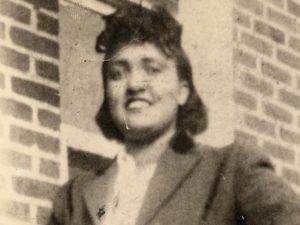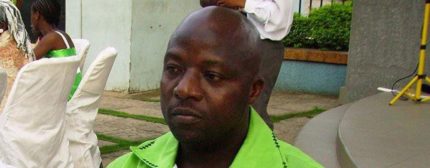
As there were no policies requiring consent from cell donors, scientists were able to collect and use Henrietta Lacks’ cells without permission.
The family of Henrietta Lacks is seeking compensation from Johns Hopkins University and other institutions for the unlawful use of her “immortal” cells in research that spearheaded decades of scientific and medical advances.
Lacks’ eldest son, 82-year-old Lawrence Lacks, said he’s the executor of his late mother’s estate and claimed that previous agreements made between the National Institutes of Health and other family members regarding use of the cells were not valid, according to The Baltimore Sun. While the agreements didn’t include compensation, Lawrence Lacks asserted that Johns Hopkins and others have been profiting off of his mother’s cells without giving their family a dime.
The cells, taken from the 31-year-old Maryland woman during a diagnostic procedure before her death from an aggressive form of cervical cancer in 1951, were the first to be contained outside the body in a glass tube. Later dubbed the “HeLa cells,” Lack’s cells soon became the most widely used human cells in scientific research, leading to advances in vaccines, cancer treatments and in vitro fertilization, among others.
“My mother would be so proud that her cells saved lives,” Lawrence Lacks said in a statement. “She’d be horrified that Johns Hopkins profited while her family to this day has no rights.”
Officials at the medical institution said that at the time the cells were collected from Lacks, there were no policies in place that required doctors to inform or obtain consent from cell and/or tissue donors. There were no regulations on the use of cells in scientific research either.
“Today, Johns Hopkins and other medical research centers maintain strict patient consent processes for tissue and cell donation,” officials said in a statement. “It is now standard practice to have an Institutional Review Board examine every research study involving human participants before it is allowed to begin.”
Johns Hopkins went on to say that it has not, in any way, profited from Henrietta Lack’s cells nor does it own the rights to the HeLa cell line.
The Baltimore Sun reported that, in 2013, the NIH and members of the Lacks family came to an agreement that required researchers to get permission from the government agency to use the HeLa cells’ genetic blueprint. In addition, the agreement mandated researchers who received funding from the NIH to use a database containing Lacks’ genome that can only be accessed by applying through the federal agency, according to the newspaper
Lawrence Lacks said he never approved that agreement, adding that when he asked the NIH for more information on the matter, they shut him out of the process completely.
“I really didn’t understand what was going on,” Lawrence Lacks said. “Instead of explaining it to me, they went three generations under me.”
In an interview, Lack announced that he, his son and his daughter-in-law were planning to file a lawsuit against Johns Hopkins in the coming weeks. He recalled a time when Hopkins doctors showed up at his door requesting blood samples from the family. Lacks said he gave the samples not knowing that they’d be used to further research the HeLa cells
“They are literally the foundation of modern medical science,” said Francis Lanasa, the attorney who’ll represent the Lacks family. Lanasa said he would use a “continuing tort” argument in court, accusing Johns Hopkins of exploiting the “personal rights, privacy and body parts” of Henrietta Lacks over the years.
Mrs. Lacks’ story garnered national attention after author Rebecca Skloot published the best-selling novel, “The Immortal Life of Henrietta Lacks,” in 2010. Last year, media mogul Oprah Winfrey announced that she would star in and executive produce an HBO movie adaptation of Skloot’s novel, which is set to premiere in April.
Lacks’ family said they wish for their relatives’ cells to be owned by her estate and vowed to establish a foundation so that everyone could benefit from her cells. Officials at Johns Hopkins claimed that the medical institution has set up a number of programs to honor Henrietta Lacks, including scholarships and an annual medical conference. However, the Lacks family said it isn’t enough to make up for the longtime unauthorized use of her cells.
“Everyone else is making funds off of Henrietta’s cells,” said Ron Lacks, son of Lawrence Lacks. “I am sure my grandmother is up in heaven saying, ‘Well, what about my family?'”
“We have been living with this for years,” he added. “It is getting to the point where it is the principal of everything.”

